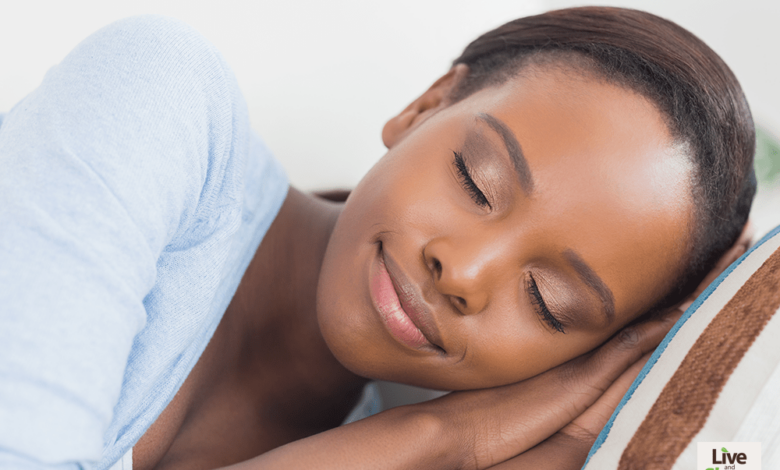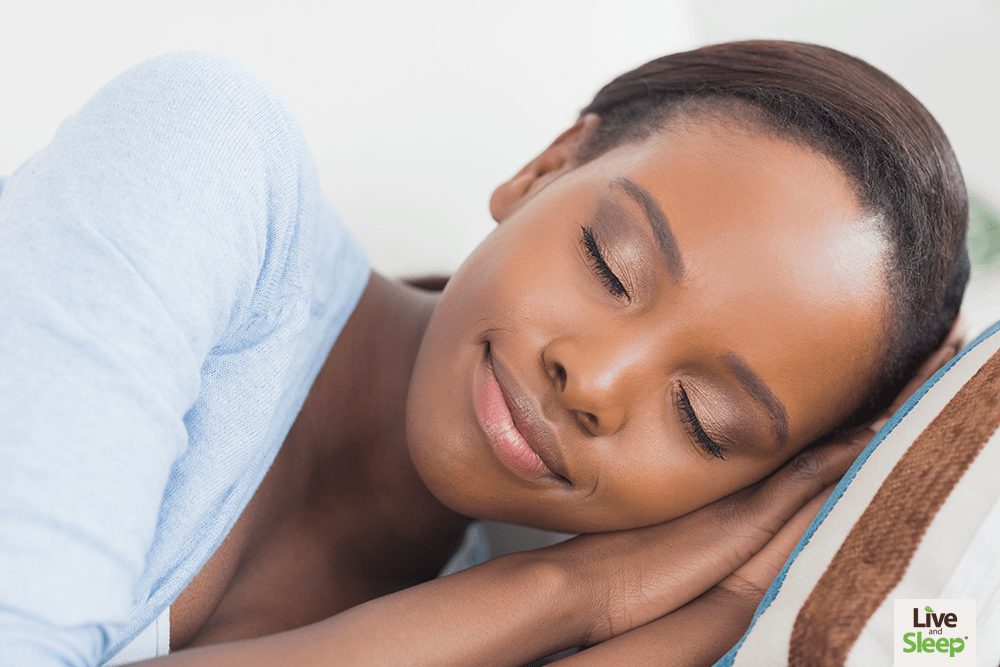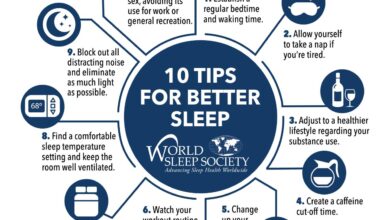
Why and How to Make Better Sleep a New Years Resolution
Why and how to make better sleep a new years resolution? It’s a question many of us ask ourselves as the year comes to a close. After all, who doesn’t crave the restorative power of a good night’s sleep? But the path to better sleep isn’t always straightforward.
It requires understanding the importance of sleep, setting realistic goals, and implementing healthy habits. This journey starts with recognizing the profound impact sleep has on our physical and mental well-being.
From boosting our immune system to enhancing our cognitive function, sleep is the foundation for a healthy and productive life. But when we don’t get enough sleep, the consequences can be far-reaching, impacting everything from our mood and energy levels to our overall health.
That’s why making better sleep a New Year’s resolution is a decision that can truly transform your life for the better.
The Importance of Sleep

Sleep is often overlooked, but it plays a crucial role in our overall health and well-being. It’s not just about feeling rested; it’s essential for our physical, mental, and emotional health.
Benefits of Good Sleep
Adequate sleep provides numerous benefits, impacting our physical and mental health positively.
- Improved Physical Health: Good sleep is essential for maintaining a healthy immune system. During sleep, our bodies produce proteins called cytokines that help fight infection. Sleep deprivation can weaken our immune system, making us more susceptible to illnesses.
- Enhanced Cognitive Function: Sleep is crucial for memory consolidation and learning. During sleep, our brains process information from the day, strengthening neural connections and improving memory retention.
- Improved Mood Regulation: Sleep deprivation can lead to mood swings, irritability, and increased anxiety. Adequate sleep helps regulate our emotions, promoting a positive mood and reducing stress levels.
- Reduced Risk of Chronic Diseases: Chronic sleep deprivation is linked to an increased risk of developing chronic diseases such as heart disease, diabetes, and obesity.
Consequences of Sleep Deprivation
Sleep deprivation can have significant consequences for our health and well-being.
- Impaired Cognitive Function: Sleep deprivation can significantly impair cognitive function, leading to difficulty concentrating, making decisions, and remembering information.
- Increased Risk of Accidents: Sleep deprivation can slow reaction time and impair judgment, increasing the risk of accidents, particularly while driving.
- Weakened Immune System: Sleep deprivation weakens the immune system, making us more susceptible to infections and illnesses.
- Increased Risk of Chronic Diseases: Chronic sleep deprivation is linked to an increased risk of developing chronic diseases such as heart disease, diabetes, and obesity.
How Poor Sleep Affects Daily Life
Poor sleep can negatively impact various aspects of our daily lives.
Making better sleep a New Year’s resolution is a great way to improve your overall health and well-being. It can be as simple as establishing a consistent bedtime routine and creating a relaxing sleep environment. But sometimes, life throws you a curveball, like the time James nearly went into a free fall after a parachuting injury, as described in this article: how a parachuting injury almost sent james into a free fall.
While that experience might seem extreme, it highlights the importance of prioritizing sleep. After all, a good night’s rest can help us bounce back from life’s challenges, whether they’re physical or emotional.
- Reduced Productivity: Sleep deprivation can significantly reduce productivity at work or school, making it difficult to focus, concentrate, and perform tasks effectively.
- Increased Stress and Anxiety: Sleep deprivation can lead to increased stress and anxiety, making it difficult to cope with daily challenges.
- Impaired Relationships: Sleep deprivation can negatively impact relationships, leading to irritability, mood swings, and difficulty communicating effectively.
- Increased Risk of Accidents: Sleep deprivation can slow reaction time and impair judgment, increasing the risk of accidents, particularly while driving.
Setting Realistic Sleep Goals
Setting realistic sleep goals is crucial for achieving a consistent sleep routine and reaping its benefits. It’s about understanding your individual needs and preferences, not just aiming for a generic sleep target.
Determining Your Ideal Sleep Duration
To determine your ideal sleep duration, consider your age, health conditions, and lifestyle. While the recommended sleep duration varies across age groups, individual needs can differ.
Making better sleep a New Year’s resolution can be a game-changer for your overall well-being. Not only will you feel more energized during the day, but you’ll also find it easier to make healthy choices, like cutting back on calories.
If you’re looking for some simple ways to shave off 500 calories a day, check out these easy ways to cut up to 500 calories. Once you’ve got your calorie intake under control, you’ll be well on your way to achieving those sleep goals!
| Age Group | Recommended Sleep Duration |
|---|---|
| Newborns (0-3 months) | 14-17 hours |
| Infants (4-11 months) | 12-15 hours |
| Toddlers (1-2 years) | 11-14 hours |
| Preschoolers (3-5 years) | 10-13 hours |
| School-aged children (6-13 years) | 9-11 hours |
| Teenagers (14-17 years) | 8-10 hours |
| Young adults (18-25 years) | 7-9 hours |
| Adults (26-64 years) | 7-9 hours |
| Older adults (65+ years) | 7-8 hours |
Creating a Sample Sleep Schedule
A sample sleep schedule for a typical week can help you establish a consistent sleep routine. Remember to adjust this schedule based on your individual needs and preferences.
- Monday-Friday:
- Wake up at 7:00 AM
- Go to bed at 11:00 PM
- Saturday:
- Wake up at 8:00 AM
- Go to bed at 12:00 AM
- Sunday:
- Wake up at 9:00 AM
- Go to bed at 1:00 AM
Creating a Conducive Sleep Environment
Your bedroom should be your sanctuary, a place where your body and mind can unwind and prepare for restful sleep. Creating a sleep-conducive environment is essential for achieving consistent, high-quality sleep.
Optimizing Your Sleep Environment
A dark, quiet, and cool bedroom promotes sleep. Darkness signals your body to release melatonin, the sleep hormone. Excessive noise can disrupt sleep cycles, while a cool temperature helps regulate your body temperature for optimal sleep.
- Darkness:Blackout curtains or an eye mask can effectively block out light. Consider using dimmable light bulbs and avoiding electronic devices with bright screens before bed.
- Quiet:White noise machines, earplugs, or a fan can help mask distracting sounds. Consider relocating your bedroom to a quieter area of your home, if possible.
- Cool Temperature:The ideal bedroom temperature for sleep is between 60-67 degrees Fahrenheit (15.5-19.5 degrees Celsius). You can adjust your thermostat or use a fan to cool down the room.
Establishing a Relaxing Sleep Routine
A consistent bedtime routine helps signal to your body that it’s time to wind down. This routine should be calming and relaxing, preparing you for sleep.
Making better sleep a New Year’s resolution is a great way to improve your overall health and well-being. It’s all about establishing healthy habits and routines, and sometimes that means rediscovering those healthy habits you may have lost along the way.
Check out these ways to rediscover lost healthy habits to get you back on track. Once you’ve got your healthy habits in place, you’ll find that making better sleep a priority is much easier!
- Calming Bedtime Ritual:A warm bath or shower, reading a book, listening to calming music, or practicing meditation can all help relax your mind and body. Avoid engaging in stimulating activities like watching TV or working on your computer before bed.
- Avoid Caffeine and Alcohol:Caffeine and alcohol can interfere with sleep, even if consumed hours before bedtime. Try to avoid these substances in the evening.
- Regular Sleep Schedule:Go to bed and wake up at roughly the same time each day, even on weekends, to help regulate your body’s natural sleep-wake cycle.
Minimizing Bedroom Distractions
Your bedroom should be a haven for sleep, free from distractions. This means minimizing noise, light, and other stimuli that can disrupt your sleep.
- Electronic Devices:The blue light emitted from electronic devices can interfere with melatonin production and make it harder to fall asleep. Avoid using phones, tablets, or computers for at least an hour before bed.
- Clutter:A cluttered bedroom can create a sense of chaos and make it difficult to relax. Take some time to declutter your bedroom and create a more calming space.
- Comfortable Bedding:Invest in a comfortable mattress, pillows, and bedding that promote good sleep.
Healthy Sleep Habits
Maintaining a consistent sleep schedule is crucial for regulating your body’s natural sleep-wake cycle, also known as the circadian rhythm. A regular sleep pattern helps synchronize your internal clock, promoting better sleep quality and making it easier to fall asleep and wake up at the same time each day.
The Importance of Consistency
A consistent sleep schedule helps regulate your body’s natural sleep-wake cycle, also known as the circadian rhythm. This internal clock influences various bodily functions, including hormone production, body temperature, and sleepiness.
- Going to bed and waking up at roughly the same time, even on weekends, helps maintain this rhythm and promotes better sleep quality.
- Consistency in your sleep schedule helps your body anticipate sleep and wakefulness, making it easier to fall asleep and wake up refreshed.
Minimizing Caffeine and Alcohol Intake
Caffeine and alcohol can disrupt sleep patterns and interfere with the quality of your sleep.
- Caffeine is a stimulant that can keep you awake and make it difficult to fall asleep, especially if consumed close to bedtime.
- While alcohol may initially make you feel drowsy, it can disrupt sleep later in the night, leading to fragmented sleep and reduced sleep quality.
To promote better sleep, it’s best to avoid caffeine and alcohol several hours before bedtime.
Exercise and Diet for Better Sleep
Regular exercise and a balanced diet play a significant role in promoting better sleep.
- Regular physical activity can improve sleep quality and reduce the time it takes to fall asleep. However, avoid strenuous exercise close to bedtime, as it can make it harder to fall asleep.
- A balanced diet rich in fruits, vegetables, and whole grains provides essential nutrients that support healthy sleep. Avoid heavy meals close to bedtime, as it can disrupt sleep.
Addressing Sleep Problems: Why And How To Make Better Sleep A New Years Resolution
Even with the best intentions and strategies, some individuals might face persistent sleep difficulties. These challenges can stem from underlying medical conditions or lifestyle factors. Understanding these issues and seeking appropriate support is crucial for achieving better sleep.
Common Sleep Disorders and Their Symptoms
Sleep disorders are a group of conditions that disrupt normal sleep patterns, leading to daytime fatigue, impaired concentration, and other health problems. It’s important to recognize the symptoms of common sleep disorders to seek timely intervention.
- Insomnia:Difficulty falling asleep, staying asleep, or experiencing non-restorative sleep. Symptoms include frequent awakenings, early morning awakenings, and difficulty returning to sleep.
- Sleep Apnea:A condition where breathing repeatedly stops and starts during sleep. Symptoms include loud snoring, gasping for air during sleep, daytime sleepiness, morning headaches, and dry mouth.
- Restless Legs Syndrome:An urge to move the legs, often accompanied by uncomfortable sensations. Symptoms include an irresistible urge to move the legs, especially at rest, and worsened symptoms at night.
- Narcolepsy:A chronic neurological disorder that causes excessive daytime sleepiness. Symptoms include sudden attacks of sleepiness, cataplexy (sudden loss of muscle tone), sleep paralysis, and hallucinations.
Benefits of Consulting a Healthcare Professional
Persistent sleep difficulties that disrupt daily life warrant professional evaluation. Consulting a healthcare professional can provide several benefits:
- Accurate Diagnosis:A healthcare professional can conduct a thorough assessment to identify the underlying cause of sleep problems, ruling out any medical conditions.
- Personalized Treatment Plan:Based on the diagnosis, the healthcare professional can recommend appropriate treatments, including medications, therapy, or lifestyle changes.
- Improved Sleep Quality:Addressing the root cause of sleep problems can significantly improve sleep quality and reduce daytime sleepiness, leading to better overall health and well-being.
Relaxation Techniques for Improved Sleep, Why and how to make better sleep a new years resolution
Relaxation techniques can be a valuable tool for promoting sleep quality. These techniques help to calm the mind and body, reducing stress and anxiety that can interfere with sleep.
- Deep Breathing Exercises:Deep, slow breaths can trigger the relaxation response, calming the nervous system and promoting sleep. Examples include diaphragmatic breathing and box breathing.
- Progressive Muscle Relaxation:This technique involves systematically tensing and relaxing different muscle groups in the body, reducing tension and promoting relaxation.
- Meditation:Meditation practices involve focusing on the present moment, clearing the mind of distracting thoughts, and promoting a sense of calmness.
- Yoga:Certain yoga poses can stretch and relax the body, while breathing exercises can calm the mind and promote relaxation.
The Power of Mindfulness for Sleep
Mindfulness, the practice of paying attention to the present moment without judgment, can be a powerful tool for improving sleep quality. By cultivating awareness of your thoughts, feelings, and sensations, you can learn to calm your mind and body, preparing yourself for a restful night’s sleep.
Guided Meditation Techniques for Calming the Mind
Guided meditation involves focusing your attention on a specific object, sound, or sensation, allowing you to let go of distracting thoughts and worries. This technique can be particularly helpful in promoting relaxation and easing your mind before sleep. Here are some guided meditation techniques that you can try:
- Body Scan Meditation:Start by focusing on your breath, noticing the rise and fall of your chest or abdomen. Slowly shift your attention to different parts of your body, starting with your toes and moving upwards, noticing any sensations of warmth, tingling, or pressure.
- Mindful Breathing:Sit or lie in a comfortable position and gently close your eyes. Focus on your breath, paying attention to the sensation of air entering and leaving your nostrils. If your mind wanders, gently bring it back to your breath.
- Visualization:Visualize a peaceful and calming scene, such as a serene beach or a lush forest. Imagine yourself in this environment, experiencing the sights, sounds, and sensations.
Journaling About Worries and Anxieties
Journaling can be a valuable tool for alleviating sleep disturbances caused by worries and anxieties. By writing down your thoughts and feelings, you can release them from your mind and create space for relaxation. Here are some tips for effective journaling:
- Set aside a dedicated time:Choose a time each day, preferably before bed, to journal. This creates a routine that signals your brain it’s time to wind down.
- Write freely:Don’t worry about grammar or spelling. Simply write whatever comes to mind.
- Focus on gratitude:End your journaling session by writing down a few things you’re grateful for. This helps shift your focus to positive thoughts and promotes a more peaceful state of mind.
The Role of Technology in Sleep
In today’s digital age, technology has become an integral part of our lives, offering convenience and connectivity. However, our reliance on electronic devices can have unintended consequences, particularly on our sleep patterns. The blue light emitted from screens, the constant notifications, and the stimulating nature of digital content can disrupt our natural sleep-wake cycle, making it harder to fall asleep and stay asleep.
The Impact of Blue Light
Blue light, a type of light emitted from electronic devices like smartphones, tablets, and computers, can suppress the production of melatonin, a hormone that regulates our sleep-wake cycle. Melatonin levels naturally rise in the evening, signaling to our bodies that it’s time to sleep.
However, exposure to blue light can trick our brains into thinking it’s still daytime, delaying the release of melatonin and making it harder to fall asleep.
Final Thoughts
As we navigate the complexities of modern life, prioritizing sleep is not a luxury but a necessity. By understanding the science behind sleep, setting realistic goals, and incorporating healthy habits into our daily routine, we can unlock the transformative power of a good night’s rest.
So, as you embark on your New Year’s resolutions, consider making better sleep a top priority. It’s an investment in your health and well-being that will pay dividends for years to come.






